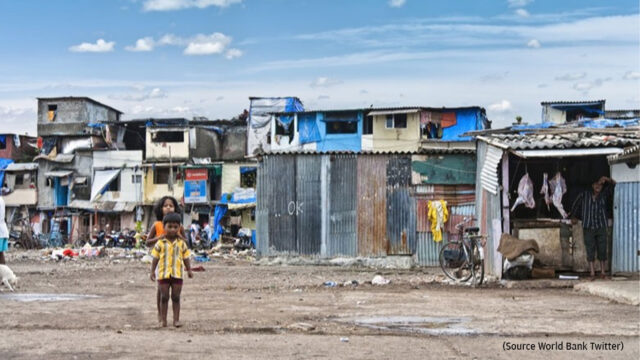The World Bank and the Government of India signed a project worth $400 million in order to support India in its effort to help the vulnerable households affected due to the COVID-19 pandemic. This is a second project undertaken, the first being the $750 million approved in May 2020. The first project enabled cash transfers to around 320 million bank accounts identified under the Pradhan Mantri Garib Kalyan Yojna, a national social protection scheme. Adding to it was also the distribution of food rations to 800 million individuals.
The second social protection response program signed on 16th December 2020 work on areas that the first program failed to achieve and fill in the gaps. Its focus is to move to a more integrated system rather than a scheme based one. This way it aims to build an adaptive social protection system under the government’s disaster response fund which would work immediately to provide support in case of emergencies or disasters across communities not only for COVID-19 but also for any unseen natural disaster.
With this program, the government aims to create a social protection platform to ensure food, social security, and cash-support for migrants across India. They hope to tap the unorganized sector and the urban poor who are currently working outside the program database so that they also become subject to government targeted measures to avail social insurance benefits.
The agreement was signed by the Additional Secretary, Department of Economic Affairs, Ministry of Finance, C S Mohapatra on behalf of the Indian Government, and Sumila Gulyani, the Acting Country Director, India on behalf of the World Bank. The preparation of this program was in collaboration with the Asian Development Bank (ADB), Agence Francaise de Developpement (AFD), and Kreditanstalt Fur Wiederaufbau (KFW).
The diversity and the size of the Indian continent are prone to have levels of post-COVID 19 economic shocks at the household, community, and national level. With the urban and pre-urban areas currently being a hotspot of COVID-19 cases, the proposed reforms will help in providing deeper social protection coverage









